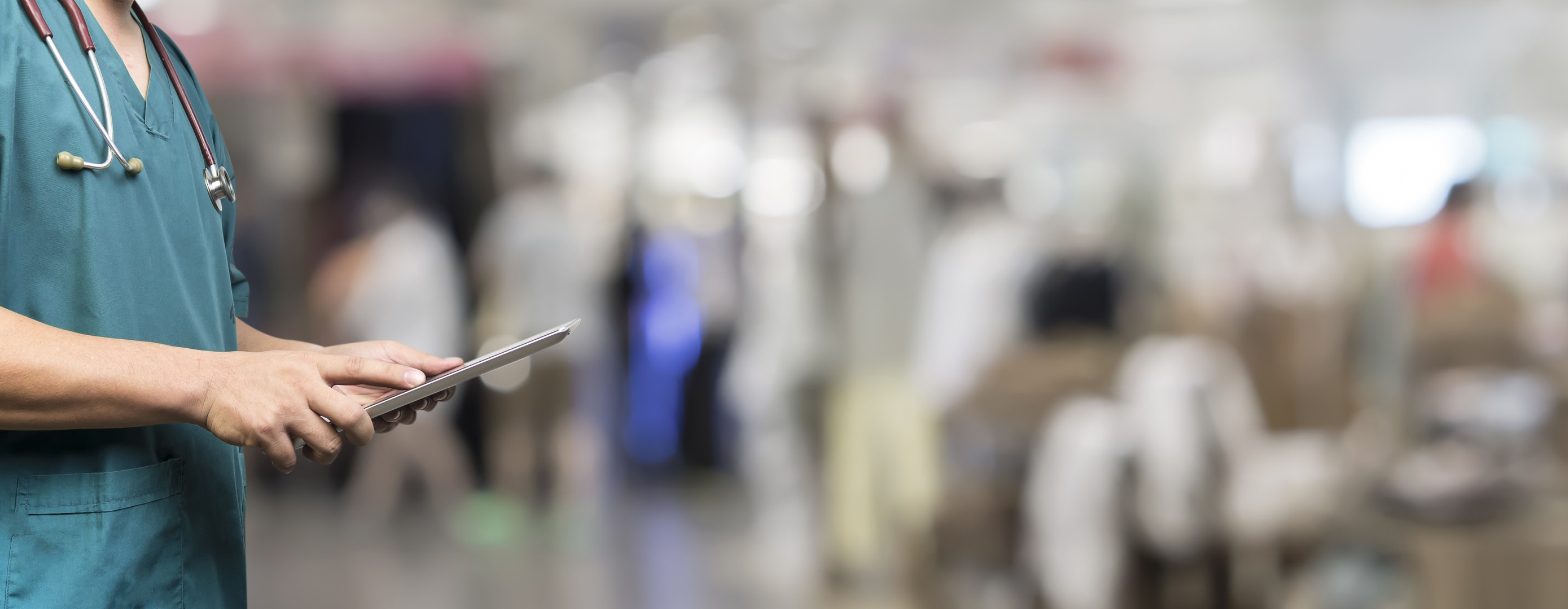Emergency Department
Our 24/7, paramedic-receiving, 17-bed emergency department provides emergency care for those patients in need of urgent medical care.
For all emergent, urgent, and non-urgent conditions, our emergency staff provide assessment, resuscitation and stabilization. Led by board-certified emergency doctors, nurses and other healthcare professionals, our patients also have immediate access to specialists should the need arise.
As a hospital-based department, we offer 24-hour radiology and CT capability, with an on-site laboratory for rigorous clinical testing and ultrasound imaging for diagnostic purposes.
Our emergency department is located across the street from the main hospital with the entrance on Hughes Avenue.
Learn more about our new ED scheduled to open in the summer of 2023!
When to Visit an ED
Below are general examples of when to visit an emergency department; it is not a complete list:
- Abdominal pain - especially intense localized pain
- Blood in the urine, or bloody diarrhea
- Bleeding that cannot be stopped
- Change in mental status
- Chest pain
- Convulsions
- Coughing or vomiting blood
- Open wound fractures
- Fainting or dizziness
- Fever with convulsions
- Severe headache or head injury, especially if the individual is on aspirin or blood thinners
- Sudden inability to speak, see, walk or move
- Sudden numbness or weakness
- Wheezing, shortness of breath or difficulty breathing
These are general examples of when to visit an emergency department, it is not a complete list. Several conditions occurring simultaneously can be significant. In case of an emergency, call 911.
What Happens in the ED
 Welcome to the emergency department (ED) at Southern California Hospital at Culver City. Our hospital determines the order in which patients are seen through a method called “triage.”
Welcome to the emergency department (ED) at Southern California Hospital at Culver City. Our hospital determines the order in which patients are seen through a method called “triage.”
Triage is the process of determining the seriousness (severity) of a patient's condition. Patients with the most severe emergencies receive immediate treatment. That is why some patients may receive medical care before you, even if they arrived at the ED after you.
We understand this can feel frustrating for those who have waited a long time for care. However, the triage system has developed over the years to include several levels of assessment to determine priority to ensure that all patients receive the best possible service.
If you arrive by any method other than an ambulance, you will:
- Check in with a patient access representative located inside the waiting room
- Take a seat in the waiting room
- Due to current COVID restrictions on the number of people allowed in the waiting room, you may be seated outside of the ED
Download triage flier in English/Spanish
I’ve registered, now what?
After registering, the triage nurse will call your name, but this doesn’t mean that you’re going back for treatment just yet. Triage nurses are specially trained for this role, as well as have certification in emergency[1]related treatment, such as CPR.
It’s the job of the triage nurse to evaluate each patient to determine the severity of symptoms with minimal information. This will typically include the following:
- Symptoms
- Vital signs (temperature, blood pressure, pulse and respiratory rate)
Once you’ve been assessed:
- Triage nurse will share your symptoms and vital signs with the ED physician
- Order necessary tests (such as blood work, EKGs or X-rays, etc.) as needed
- Periodically reassess your vital signs
How will I be updated?
Our patient access representatives are trained in communication skills and will provide you updates as you wait, or feel free to ask the representative for an update.
Need further assistance?
If you feel your service or care is not reflective of this national recognition, please call our Patient Ambassadors at (310) 836-7000 ext. 1234, our Patient Experience Officer at (310) 836-7000 ext. 3370, or after hours ask to speak to the nursing or night supervisor for quick resolution.
Location
The ED entrance is on Hughes Avenue. For information about emergency services , call (310) 836-7000 ext. 2520. In event of an emergency, call 911.

